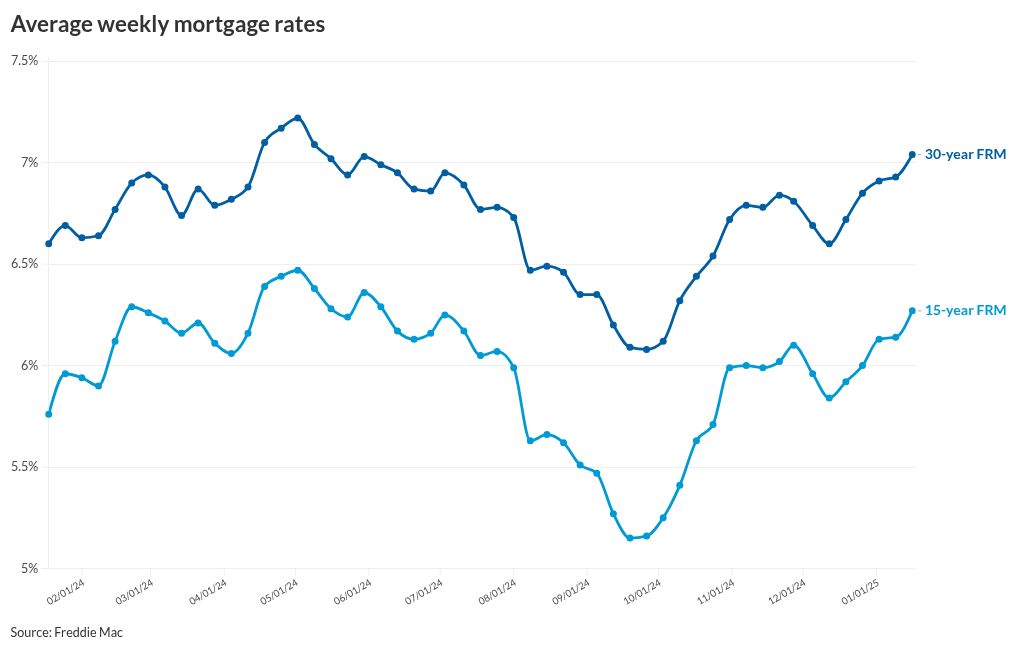Mortgage rates broke through the 7% ceiling this week, as the relatively positive inflation news that drove down the 10-year Treasury yield occurred late in the period.
It is the fifth consecutive week that the Freddie Mac Primary Mortgage Market Survey increased, and is over 7% for the first time since last May.
The 30-year fixed-rate mortgage averaged 7.04% as of Jan. 16, a gain of 11 basis points
Meanwhile, the 15-year FRM averaged 6.27%, up from 6.14% for the week of Jan. 9. It averaged 5.76% for
“The underlying strength of the economy is contributing to this increase in rates,” said Sam Khater, Freddie Mac chief economist, in a press release.
The benchmark 10-year Treasury yield was at 4.63% at 11 a.m. eastern time on Thursday morning. This is after closing at 4.8% on Jan. 13 and peaking at 4.81% the following day before turning lower.
The Mortgage Bankers Association’s
Lender Price data on the National Mortgage News website put the 30-year FRM at 7.12%, which while being a 12 basis improvement on the day, was just 3 basis points lower than one week earlier.
According to Zillow’s rate tracker, the 30-year FRM was at 6.74% at that time on Thursday morning, down from an average of 6.8% on Wednesday and of 6.78% for the previous week.
“A strong employment report on Jan. 10 called into question how much the Fed would need to cut given the robust labor market,” said Kara Ng, senior economist at Zillow Home Loans, in a Wednesday evening statement. “In the following few days, this narrative pushed mortgage rates to their highest daily level since late May 2024.”
The
“Daily mortgage rates pulled back slightly as a result, albeit to a level still challenging for homebuyers,” Ng said.
Wolters Kluwer surveyed economists on Jan. 6 and 7 for its Blue Chip Economic Indicators report.
Respondents were unanimous in the opinion that the Federal Open Market Committee would not reduce short-term rates at this month’s meeting. However, 71% believe the next rate cut will come in March, while 7% said it would occur in May and 21% felt it would be even later than that.
All respondents are looking at a 25 basis point reduction in the target when the FOMC does act.
In the near-term BTIG analyst Eric Hagen expects mortgage rates will continue hovering around 7%.
“It’s not ideal to see longer-term interest rate volatility rising at the same time investors trim the path of rate cuts at the short-end to embed just 40 basis points of additional cuts through this year,” Hagen wrote in his weekly report. “That said, we like the setup for mortgage spreads and stock valuations to rally further if the narrative reverses.”
The January Wolters Kluwer survey put the average Fed Funds Rate reduction at 63 basis points,

